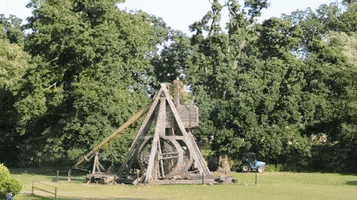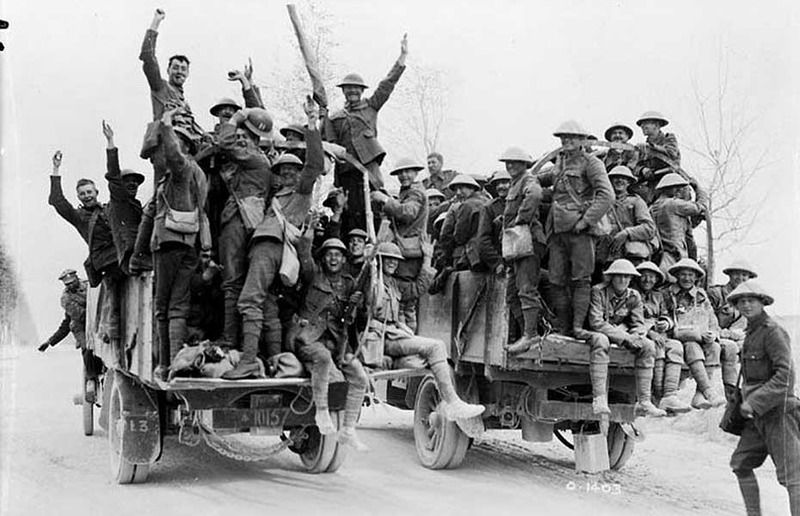Battle of the Somme
-
Montegriffo

- Posts: 18852
- Joined: Wed Nov 30, 2016 7:14 am
Re: Battle of the Somme
some interesting stuff here,
http://www.historynet.com/field-marshal ... eneral.htm
http://www.historynet.com/field-marshal ... eneral.htm
When the horrific 142-day ordeal of the Somme was finally over, the feeling in the British government was “no more Sommes.” The politicians, it seemed, had learned something, but Haig had not. He wanted to fight another battle, very much like the Somme, only bigger, and on terrain that was even less well suited for the offensive. This time, at the notorious Ypres salient in Flanders, he believed he would get it right and win the war. The cavalry, of course, would carry the day.
By the summer of 1917, frontal assaults had failed disastrously up and down the Western Front. After its last attempt at piercing the German line, the French army had broken and mutinied. Haig had no new tactics to offer, and the only technological advance that showed any promise was the tank. However, there may have been no terrain along the entire 300-plus miles of the Western Front less suited to tank warfare than the wet, low-lying ground of Flanders.
Death, death, to the IDF.


-
TheReal_ND

- Posts: 26048
- Joined: Wed Nov 30, 2016 6:23 pm
Re: Battle of the Somme
Stop. I still have nightmares about it.
-
Montegriffo

- Posts: 18852
- Joined: Wed Nov 30, 2016 7:14 am
Re: Battle of the Somme
Sorry Nuke, just skip to the last two paragraphs.
But Haig and his staff were sublimely confident, and as Churchill dryly points out, “hopes of decisive victory…grew with every step away from the British front line and reached absolute conviction in the Intelligence Department.” However, Haig’s civilian bosses in London were skeptical. The new prime minister, Lloyd George, wanted to fight defensively on the Western Front while waiting for the Americans, now in the war, to begin arriving in Europe in decisive numbers.
Haig waged the ensuing political battle with customary remorselessness and prevailed in the bureaucratic trenches. He got everything he wanted in the way of men and materiel for what became known as Third Ypres or Passchendaele, a battle remembered for, among other things, terrain so wet the entire world seemed to consist of nothing but mud and shell holes filled with vile water. Indeed, in no land battle in history did so many men die by drowning.
In Churchill’s devastating judgment, Haig “wore down alike the manhood and the guns of the British army almost to destruction.” Keegan is also merciless: “On the Somme, [Haig] had sent the flower of British youth to death or mutilation; at Passchendaele he had tipped the survivors in the slough of despond.”
Of the final assault that carried the ruined, pointless little village of Passchendaele, British military historian J.F.C. Fuller, wrote, “To persist…in this tactically impossible battle was an inexcusable piece of pigheadness on the part of Haig.”
This is the key to Haig’s failure as a general. Every virtue becomes a flaw when pushed to excess. Daring becomes impetuosity. Prudence becomes irresolution. Will and resolution become stubbornness and pigheadedness. Haig evidently believed that will and resolve could carry any obstacle. Even mud and machine guns. Third Ypres was the battle that gave rise to the story of Haig’s chief of staff being driven to the front and, as he viewed the muddy wasteland, breaking into tears and saying, “Good God, did we really send men to fight in that?”
“It gets worse,” his driver said, “farther on up.”
Fussell, among others, finds that story a little too good, and some of Haig’s defenders consider it a slander to imply the field marshal and his staff were so blithely unaware of actual battlefield conditions. One wonders why they protest: It would seem worse if they actually had known and kept sending men up to the front, where in a literal quagmire the Germans, in Churchill’s memorable phrase, “sold every inch of ground with extortion.”
The indictment against Haig and his “pigheaded” insistence of fighting Third Ypres at a cost of more than 250,000 British casualties is not simply one of losses, though that would be enough. What secures Third Ypres’ status as one of history’s great military blunders is the fact that while Haig thought it a victory, the battle nearly lost the war for the Allies.
He still had his defenders, but they were in the last trench, barely holding on. Their books argued Haig was a curious, inventive soldier who had, in fact, appreciated the tactical value of machine guns and tanks. Before he died, however, Haig himself gave his critics ammunition by clinging publicly and stubbornly to his outdated certainties. As late as 1926, he was still capable of writing this about the future of warfare:
I believe that the value of the horse and the opportunity for the horse in the future are likely to be as great as ever. Aeroplanes and tanks are only accessories to the men and the horse, and I feel sure that as time goes on you will find just as much use for the horse—the well-bred horse—as you have ever done in the past.
Astonishing that any man who was there could still believe in cavalry 10 years after the Somme. But it is the bit about “the well-bred horse” that really gives the game away. Haig was undeniably a butcher, as his severest critics have claimed, but he was most of all a pompous fool.
Last edited by Montegriffo on Sun Feb 19, 2017 10:07 pm, edited 1 time in total.
Death, death, to the IDF.


-
TheReal_ND

- Posts: 26048
- Joined: Wed Nov 30, 2016 6:23 pm
Re: Battle of the Somme
Stop it. You made your point. Better men than you served faithfully.
-
Montegriffo

- Posts: 18852
- Joined: Wed Nov 30, 2016 7:14 am
Re: Battle of the Somme
Oh for sure, and worse men than me still defend it.....TheReal_ND wrote:Stop it. You made your point. Better men than you served faithfully.
Death, death, to the IDF.


-
TheReal_ND

- Posts: 26048
- Joined: Wed Nov 30, 2016 6:23 pm
Re: Battle of the Somme
You'll have your way soon enough.
-
Montegriffo

- Posts: 18852
- Joined: Wed Nov 30, 2016 7:14 am
-
Smitty-48
- Posts: 36399
- Joined: Wed Nov 30, 2016 3:22 am
Re: Battle of the Somme
There was no such thing as rolling barrages at the Somme, that tactic had not been developed by this point, they hadn't yet mastered the technique of coordinating fire support with the advance, that was an all new tactic which was only developed in the wake of the Somme.Montegriffo wrote:Just to try and get back on topic.
What were the reasons the "rolling barrage" failed at the Somme. Was it a failure of the barrage in cutting the barbed wire and churning up the ground meaning the attacking troops were to far from the German trenches when the shelling stopped?
After the Somme, cordinated fire support was mastered, along with combined arms, echeloned assaults, specialist sub units, comprehensive preparation of the battlefield, etcetera, so at Vimy Ridge the next spring, you see the Canadian Corps take an objective in a day, which the British and French had previously failed to take after weeks of trying, with the French suffering 150,000 casualties in the attempt.
Under Field Marshall SIr Julian Byng (Future Canadian Viceroy) and General Sir Arthur Currie (Father of the Canadian Army), the Canadian Corps was assembled as an elite formation which would employ the bleeding edge of tactics, techniques and procedures, inventing many of them as they went, and their first test, came on 9 April 1917 at Vimy Ridge, upon which the Shock Troops of the Empire were born.
The Somme Offensive is the last battle of the 19th century, Vimy Ridge is the first battle of the 20th.

Victorious Canadians returning from Vimy Ridge, 1917.
Nec Aspera Terrent
-
TheReal_ND

- Posts: 26048
- Joined: Wed Nov 30, 2016 6:23 pm
Re: Battle of the Somme
Storm troopers were the bleeding edge. Canadians make fine soldiers but just stop mate.